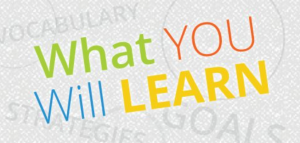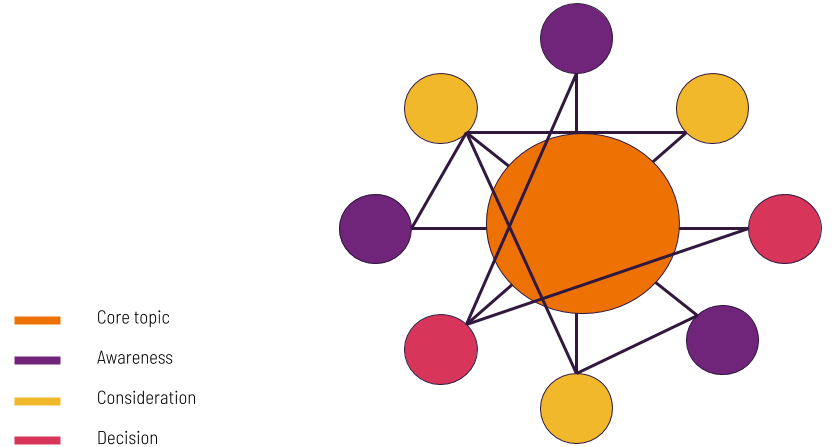“Sales is the lifeblood of any business.”
I’m exploring all things sales today with Rachel Bourke, the founder of SalesSPACE, where she has trained thousands of small business owners how to make big money by improving their sales conversation.
Talking to Rachel you can tell that she has this amazing positive energy (there’s often negative connotations associated with salespeople:) and she really has a gift for sales and influencing people. She has created a sales system that can make anyone increase their sales and I’m looking forward to sharing it with you today.
In my conversation with Rachel we cover a wide range of topics including
Table of Contents
ToggleHow to get the first sale for your business, how to craft your sales message that speaks to your ideal clients and Methods to overcome nerves when pitching.
For any business owner struggling with their sales process, this episode is a must-listen.
What you will learn in this episode

- How to get your first sale for your business
- How to craft your sales message that speaks to your ideal clients
- How to influence people to want to interact with your brand and then eventually buy your products
- The 10 critical steps in a sales conversation
- Understand your pitch: Why you need to be able to pitch what you do with clarity
- Saying what you do in a metaphor (picture it like this…) builds a deep connection
- How to formulate sales metaphors for your business
- Methods to overcome nerves when pitching
- Conversations cause chemical reactions > how to understand the different chemical reactions that are occurring in our bodies at any time during sales conversations.
- How a bit at that adrenaline does sharpen our minds
- Why the most important thing in sales is our mindset
- Why a mindset audit is a powerful tool in sales
- Australia vs United States selling culture
- How to sell through inspiration and not manipulation
- How to learn a style of selling that matches your personality
- The best way to learn from famous sales personalities like Jordan Belfort, Zig Ziglar and Grant Cardone
- Lessons from comedians that can help you sell
Resources mentioned

“The first sale is always to yourself, and we’ve probably all heard that, but no one will ever buy from you unless you are completely sold on what you sell and your worth.”
“You need to price in a way that falls within a window of expectation for people. We all were brought up to think that when we’re paying a little bit more for something, it’s more valuable and it’s got more quality. So be at that higher end of expectation.”
“According to most studies, people’s number one fear is public speaking. Number two is death. Death is number two. Does that sound right? This means to the average person, if you go to a funeral, you’re better off in the casket than doing the eulogy.”
Jerry Seinfeld
Comedians in Cars Getting Coffee
Book Recommendations
Raving Fans: Revolutionary Approach to Customer Service by Ken Blanchard
Feel The Fear And Do It Anyway by Susan Jeffers
The Absolutely Critical Non-Essentials by Dr Paddi Lund
What business would you build on Mars?

This is a great question. You know what I’m going to do? When we get to Mars, everybody is going to feel like they’re excited, but very quickly they’re going to be homesick and missing their loved ones very badly. What I know to be true is that when you’re feeling like that, you need to exercise and you need to feel like you belong and that you can build bonds with other people as quickly as possible. There’s no better way to do that than for everybody to be exercising and having fun together.
I’m going to go back to my personal training days actually, and I’m going to get together and have everybody at the start of every day, we’re all going to exercise together. We’re going to have fun together. We’re going to do programs for people that all match their personalities and their fitness levels, etc. It’s going to give them that big endorphin hit every morning so that they can start to feel like they’re a new community of people who are feeling more connected and bonded together because that will help them overcome their feelings of homesick and missing people that they love. I think having a daily dose of inspiration and feeling great is important, and I’m going to be the person who runs that. I’m going to market it. I’m going to do what I do very well and what I help our clients to do as well. It’s going to take us two years to get to Mars.
Get in touch with Rachel
Special offer from Rachel
To take up the special SalesSPACE OFFER from Rachel, visit https://salesspace.com.au/your-sales-success-kit/ and apply the discount coupon: FTM
Your Sales Success Kit – Normally $497 and 12 month access. Now only $297 and lifetime access.
Transcript
Brendan: Rachel, welcome to the show.
Rachel: Thank you very much for having me.
Brendan: Sales is obviously the lifeblood of any business. Can you tell us about the moment that you came to the realisation that you wanted to work in sales and help businesses in this area?
Rachel: Yes, absolutely. I have run my own business for my whole career. Straight out of university, I started a personal training business. Right through high school I wanted to work for myself. I started as a personal trainer in the Eastern Suburbs of Sydney. At first, I had five hours of personal training clients per week. Within one month, I had 40. I built my PT business incredibly quickly and was able to maintain that level for over 12 years.
Quite early on, at the age of 22, I realised that I loved influencing others to do what they needed to do to feel so much better in themselves. I knew I had a gift for this sort of thing. I then changed my career and developed the skills required to be an executive coach. In all of the different hats that I’ve worn, I’ve been in an area of influence.
Brendan: Speaking of influence, how do you influence people to want to interact with your brand and then eventually buy your products?
Rachel: It comes down to being the person that people love to work with. Influence requires communication mastery. It’s understanding how to speak in a way that instils hope in other people. One of my strongest beliefs is that after we speak to prospects, when they either hang up the phone or walk away from a meeting with us, they should feel excited in them self. They should be thinking “I enjoyed speaking to that person or I feel better. “I want to know more” or “I can’t wait to work with them!”
Brendan: For early stage businesses, small, medium businesses, it’s hard to start selling. People don’t know where to start. What do you recommend to these people?
Rachel: First of all, the first sale is always to yourself. We’ve probably all heard that, but no one will ever buy from you unless you are completely sold on what you sell and your worth. You need to be very clear on what you sell, and you need to price it in a way that falls within a window of expectation for people. But, be on the upper end of that price expectation. We were brought up to think that when we’re paying a little bit more for something, it’s more valuable and it’s of a higher quality. Be at the higher end of that price expectation.
It’s always interesting to ask yourself, “Would I pay the fee I charge if I was going to buy a product or service exactly like mine?” Think about it from a value perspective. Be very clear on your value.
Brendan: Take us through the steps of completing a sale. You’ve mentioned influence. What are the next steps?
Rachel: We believe there are 10 critical steps in a sales conversation, but I’m going to condense that a little for listeners so it’s as easy as possible. First of all, you must be able to pitch what you do. As I said before, clarity is incredibly important. Be clear on what you do and be able to say it in a succinct manner. You must be able to explain what you do with confidence and speak with conviction. When you pitch well, people will say, “Wow, that’s awesome. Tell me more.” Most people are so keen to get into the details of how they do what they do. It’s boring and overwhelming. “I do this and then I do that etc”. That is where you lose everybody.
The next step is to explain what you do in a metaphor.
So, I pitch to you. You would then you say “Wow, that’s really cool. How do you do that?” I would then say, well, Brendan, picture it like this….(I then deliver my metaphor). You would then say “I had never thought of it like that before”. That’s the way you build a deeper connection with somebody that you’re speaking with. They feel they are on the same team as you. Once you’re on the same team, rather than feeling like the opposition, the sales conversation changes enormously.
Moving from there, we need to know the right questions to ask that affect our clients or prospects emotionally. It’s not about pain-based selling. We don’t believe in drilling people on their pain. Take people on an emotional journey with your questions. Done correctly, people will always ask “Okay, where do we go from here?” That’s sales mastery. It’s not about building up to a big scary close. You want to get to a situation where the client is actually asking you, “Where do we go from here? I like what I’m hearing”.
Brendan: I want to dig a bit deeper on the metaphors. How can we come up with these metaphors?
Rachel: Crafting metaphors is a creative exercise and therefore not so easy to do when put on the spot! We all use many metaphors when we’re speaking to people. Just being consciously aware of the metaphors you use in your conversations will allow you to start building up a library of metaphors that explain what you do in different situations. You can also think about the different things that you do on a day to day basis. Run of the mill, easy things that everybody understands or can relate to. Those metaphors are really the most powerful. Choose metaphors that you never have to explain.
Brendan: You touched on something interesting before. You were saying when people come to the close, they might get nervous. They might get those butterflies. Obviously presenting, I think Jerry Seinfeld says it’s the number one human fear, and death is number two. What are some ways that you can overcome these brain freezes, these butterflies? Is it okay to be nervous sometimes? I just watched an episode of Comedians in Cars, getting coffee with Eddie Murphy. He was saying his best bits and his best sets as a stand-up comedian come when he has a few of those butterflies. I can relate to that as well. At our dojo, our sensei always says you need to have those butterflies but you need to point them in the right formation. Can you talk us through a bit of maybe your experience or what you teach some of your clients about controlling those nerves and how to harness them to better sell?
Rachel: Yes absolutely. I think of nerves as a rush of adrenaline. We know that conversations cause chemical reactions. Understanding the different chemical reactions that are occurring in our bodies at any time during sales conversations gives us power. We know what’s happening and we know how to make the most of it.
We also know that the same thing is happening for our clients. If our conversations cause chemical reactions, they’re feeling nervous sometimes as well. Understanding what’s going on for each other and being empathetic, allows you to take a deep breath and just be who you need to be for that person. If you were nervous and I was working with you, then I would be able to feel your nerves because we can feel each other’s energy. If I could feel you were nervous, I would use my voice to calm you down. I would be who you need me to be for you to feel relaxed in my presence. Just doing that would allow me to relax more as well. The mirror neurons ensure we calm each other down.
I do believe that a little adrenaline does sharpen the mind. A very helpful belief to have is that you are good on your feet. Doing work on yourself beforehand, and building beliefs that work for you as a business owner or person in sales, is phenomenally important. It’s our mindset that can mess it up. The most important thing in sales is the way we think. We ask our clients “have you done a Mindset Audit? Have you constructively looked at how you’re thinking, and understand yourself well enough, to be at your best when you’re selling?
Brendan: Mindset Audit sounds interesting. What’s involved there?
Rachel: If I was working with you, Brendan, I’d be asking you your beliefs around certain situations. What are your beliefs about speaking to new clients? What are your beliefs about actively networking? What are your beliefs about closing a deal? What do you think about when clients speak about price and when someone starts challenging you or has objections? These thoughts must be assessed and if they are affecting your performance and costing you sales, we need to develop substitute beliefs that are far more helpful.
When you understand who you are in any certain situation, you’ve got so much more power to be able to do things differently. We always start with a mindset audit because people who love selling are the minority. It’s not selling that I love. It’s inspiring others -that’s what I love to do. That’s why we teach a very different way of selling. When we show clients how to be inspirational to prospects, it makes it very easy for people to buy from them.
Brendan: Interesting. We’ve covered the foundations. What about the actual sales message? How do we come up with a sales message that will consistently work for us?
Rachel: Good question and such an important point to discuss. Firstly, who are your ideal clients? For us to have messaging that speaks beautifully to our target audiences, we must absolutely understand who they are. There are four main distinctions to focus on when targeting your audiences – observational, situational, relational and aspirational. Know those, and under each category, write down 5 to 10 points.
You can then start to build a language for your business, or what we call sales messages, that speak exactly to those ideal clients. When they read or hear them, they instinctively feel you are speaking directly to them. They feel important – one of the critical things about being able to sell.
Brendan: I wanted to quickly ask you about Australian versus United States selling culture. Here in Australia, we’re a bit more modest. We don’t like to, I guess, build ourselves up and sell ourselves. How do you get your clients to overcome that I guess ‘cultural obstacle’?
Rachel: There is a big difference between selling in Australia and selling in the US. I lived in the UK for quite a few years and the English way of doing things is also much more like Australia. It is a more modest approach. That’s why we say to our clients, “sell through inspiration, not manipulation”. There are a lot of manipulative ways of selling to people. People feel like they have to buy because they’re in a hole. They’ve been made to feel like they’re in a world of pain. Whereas, you can be far more inspirational, and they think, there is a better way forward – they feel hopeful.
To answer your question, in Australia, people want to be educated and inspired, not sold to. The key is to ask questions that someone has never been asked before. When they say “I have never been asked that before” or “let me think about that for a moment”, you become on the same team and they want you to help them. They start looking to you to be helped, and that’s a very different way of selling than what else is out there in the world. That’s why it’s so much easier for people to learn that approach. People are excited to learn skills of influence rather than feeling like they’re learning to be a salesperson.
Brendan: Powerful. Can you tell us about a time when you’ve worked with one of your clients? From the early days, you’ve taken them through the process and everything that we’ve mentioned today, the before and after difference?
Rachel: Yes. Wow. We were with a group of clients yesterday. If I think about one of them in particular, she started her business feeling really unsure of what direction to go in. She’s been an incredibly successful corporate person. She’s won a lot of awards as a corporate leader and has started her own business. Just helping her gain clarity about who she is in business, who are going to be most attracted to her and who she can help most has been a huge realisation and quite an incredible, intense journey.
Yesterday she said to me, “I know now. I now have a deep knowingness that I am on the right path. I am attracting the right people, and I’m saying all the right things. I can feel a huge wave of momentum. I feel like I’m now riding the wave and there’s no stopping. I can’t pull off the wave. I don’t even want to pull off the wave. I feel like I’m about to stand up and surf this like it’s never been surfed before”. That is incredible, to help someone on that journey.
We’ve had many clients who have done extraordinary things from a revenue point of view. They’ve been at a certain stage in their business and then we’ve taught them how to sell. We’ve taught them to be a Buyer’s CoachTM, our trademarked methodology. Many clients have been able to go from earning around $200,000 a year to earning over a million dollars a year and being able to sustain that. These particular clients have been small business owners with only one or two key staff. To many, this level of income is massive.
There are other companies who come to us in the $10M mark and they’d like to get to $50M within the next three years. We do deep levels of message development for them and make sure their sales messages are taught to their entire team (across the business as a whole) but also added correctly to their website and marketing material. That allows them to hit those targets. It’s across the board. We’ve got many incredible stories of businesses of all different levels.
Brendan: Amazing. For early stage businesses that are looking to get into the sales space, how do they learn how to do this? There are so many resources out there at the moment, a lot of noise about how to make a sale. We’ve talked about the US method versus the Australian and UK method. There’s people out there like Jordan Belfort. People might watch Wolf of Wall Street, sell me that pen, that kind of scene. You’ve got the Zig Ziglar, the Grant Cardones. Where should we go? Are these resources worthwhile or is that too much of the fee-based approach that you mentioned before?
Rachel: I think there are some great things to learn from everybody. Most importantly, to be great at selling, learn a style that matches your personality. There are people out there with big, bolshy personalities that love the American way of selling but it is critical to find a style that matches you and matches your personality.
I think the most influential and efficient way to learn is to choose a trainer that you love and immerse yourself in their work. Get personal help from them. We’ve trained thousands of small business owners. We know that people come into our trainings at all different levels, and sometimes it just takes the slightest tweak of their language to get the most phenomenally different result. Sometimes it’s what you’re saying that needs to be polished. Sometimes it’s just changing the way you say things that will make all the difference. Having someone to actually help you, and allow you to practice in their presence, makes the world of difference.
Brendan: Yes. I never realised that. Referencing the Comedians in Cars, Getting Coffee Episode again with Eddie Murphy. He was saying a joke has to be worded exactly the right way, exactly the right wording, correct order. Otherwise, it just bombs.
Rachel: Absolutely. That is exactly what it’s like in selling. If you even repeat yourself, for example, say the same word twice when pitching, you will lose your audience.
Brendan: Wow.
Rachel: The human brain is highly judgmental, so everything we do has to be designed, created, scripted and polished so that when we speak, we know our words are impactful. People say to me, “oh my, gosh, that’s so robotic. I can’t imagine doing that. That’s not me. I’m never going to be like that.” You have two choices in business. You can be struggling and bouncing along the bottom or you can do the work and soar. If you do the work behind the scenes, then you will get the results. When you do the work behind the scenes, you’re writing scripts and copy that follow frameworks that work. Speaking succinctly becomes automated, like driving a car.
We can all do incredible things whilst driving a car. We can get from here to two hours away without even realising that we’ve been driving. We’ve been thinking about something else because driving is automated for us. That’s what our sales conversations need to be like, especially our pitch. So automatic and it feels totally natural. It’s critical. If you repeat yourself, people will say no to you. It is exactly what you said before in your example. Your words mean the world.
Brendan: Going to a more personal level now, Rachel, what are you struggling with at the moment? What’s in your current business black box?
Rachel: What am I struggling with at the moment? We have done an enormous amount of systemisation for our clients. We’ve uploaded all of our IP onto a digital platform. That has been a huge amount of work. Time consuming and endless!
One of the biggest challenges for us has been to work on the backend and get everything incredibly structured and seamless. Just like everybody else, we’ve got to be out there selling as well, be the face of the business. Speak at events, help clients and run events ourselves. It’s a huge juggle to do both as well as maintain sanity.
Brendan: What do you wish you were more of an expert in at the moment?
Rachel: If I was more of an expert in anything at the moment, I think it would be this … I wish that when I went on holidays, I didn’t think of business. I could switch off. I feel, as a business owner, one of the hardest things is switching off. Often, I wake up on a Saturday morning at 4 AM and going flat out through my mind is all the things I wanted to have done by Friday but didn’t get to. Just being able to switch off and know I could catch up again and be who I needed to be first thing Monday morning, that would be an amazing skill to have.
Brendan: It would be amazing.
Rachel: We could all be better at so many different things in business. Many small business owners, or high-achievers, don’t have the ability to switch off. There’s always that constant feeling that we have to be more and do more. Getting that straight is a challenge for a lot of people.
Brendan: Yeah, sure. You mentioned books before. You mentioned Zig Ziglar. Are there any other more recent books that you would recommend to people looking to get started in sales?
Rachel: I want to talk about an older book that really changed things for me. As I’ve already said, I don’t switch off on holidays… 20 years ago I went to Fiji for a week and I took business books with me to read. Not only did I read them, but I summarised them and wrote notes!
Brendan: On holidays.
Rachel: Yes, whilst on holiday. This is what I was talking about. I wish I was better at switching off! There were two books I read. The first one was Raving Fans. A little book about creating raving fans. I read it back to front and inside out and made notes. Wanting to be someone that everybody raves about in business is a really, really important mindset to have.
To go hand in hand with that I read another book called The Critical Non-Essentials by a dentist in Queensland, Dr. Paddi Lund. The Critical Non-Essentials changed the way I dealt with my clients. I would say to any listener, reach out there and get a copy of The Critical Non-Essentials.
Those two in particular, and also Feel the Fear and Do it Anyway, an oldie but a goodie. Those three books have been amazing. They’ve all stuck with me and shaped who I am in business today.
Brendan: Yeah, I’m going to put all of those books in the show notes that you guys can find at metigy.com/podcast. I just wanted to thank you for coming in, Rachel, spending so much time sharing your stories and knowledge over the last 25 years of being in the sales arena.
Rachel: You’re welcome!
Brendan: A couple more questions before we wrap up.
Rachel: Yes.
Brendan: I wanted to find out what business advice that you would give your 20-year-old self in Fiji on holidays. What would you say to yourself?
Rachel: Oh gosh. When I talk about Feel the Fear and Do it Anyway, I knew who I wanted to be in my 20’s but it took quite a while for me to be brave enough to do it. I struggled enormously with nerves, when I was younger. I was very good at sport at school. I was very good things at things that I really wanted to be good at, but my gosh, I was crippled with nerves. I’ve been a horse rider all my life as well. I’ve done a lot of competing since I was 12 and have been riding since I was eight. I could’ve done so much better in my career as a rider if nerves didn’t affect me so badly. I would have learned to overcome my nerves a lot more in my 20’s. That would’ve changed my business enormously.
Today in business I’m incredibly proud that I can stand on stage in front of hundreds of people and actually love it, not be shaking to death and petrified. I can own it, enjoy it, and be who I need to be for everybody in the room. It’s been huge for me. I know a lot of people struggle with nervousness and fear. Get help as quickly as you can because I spent about 15 years struggling when I didn’t need to. My currently level of success could have come to me so much earlier.
Brendan: Wow. Well, we’ve come to the final question of the podcast, Rachel, and it’s a bit of an abstract one. Are you ready for launch?
Rachel: Here I go. Yes.
Brendan: You’re on the first flight to Mars with Elon Musk and the first settlers aboard the SpaceX Starship rocket. What business do you start when you land on Mars and how do you sell it to the new Martians?
Rachel: This is a great question. You know what I’m going to do? All the first people on Mars, well, I figure they are going to feel excited, but very quickly they’re going to be homesick. What I know to be true is that when you’re feeling like that, you need to exercise and you need to feel like you belong and that you can build bonds with other people as quickly as possible. There’s no better way to do that than for everybody to be exercising and having fun together.
I’m going to go back to my personal training days and get everybody together at the start of every day to exercise. We’re going to have fun together. It’s going to give them a big endorphin hit every morning so that they start to feel like they’re a new community who are feeling more connected. This will help them overcome their feelings of homesickness and missing people that they love.
I think having a daily dose of inspiration and feeling great is important, and I’m going to be the person who runs that. I’m going to market it and have everybody sold on the idea before we reach Mars. I’ve got the time as it will take us two years to get there!
Brendan: Two years. You’ve done your research.
Rachel: I will have built the excitement in people before they even get into that situation so they’re looking to me for answers.
Brendan: Awesome. Sounds like a way to great way to acclimatise to Mars.
Rachel: Yes, absolutely. Let’s hope we’ll all have our oxygen masks on!
Brendan: That’s right. Maybe a big bubble or something.
Rachel: Yes, big bubbles, whatever it takes.
Brendan: Rachel, this has been fun. I’ve got a lot of homework to do myself as well. Thanks for all the value and resources. You guys can find everything that Rachel has mentioned in the show notes underneath the episode at metigy.com/podcast. Is there anything that you’d like to say before we wrap up, and how can we find out more about SalesSPACE?
Rachel: Yes, absolutely. I would love to offer any of our listeners today access to a training that is going to be a huge eye-opener for them if they want to excel in sales. We all know that sales is the lifeblood of any business. It doesn’t matter how much we believe in what we do or how good we are at what we do. If we are not making money, we cannot remain in business. For the next 10 days, listeners can purchase our online training, Your Sales Success Kit,for special podcast only price. The regular price is $497 for 12-months access. We are offering a VIP rate to our listeners of 297 Australian dollars and lifetime access. This is strictly for the next 10 days only. To access this offer go to https://salesspace.com.au/your-sales-success-kit/ and Apply Discount Coupon – FTM.
Brendan: Awesome. Amazing. Thanks for the amazing offer. I’m going to check that out myself.
Rachel: Perfect.
Brendan: We’ll put that in the show notes as well.
Rachel: Yes. Wonderful.
Brendan: Once again, Rachel, thank you so much for coming in. It’s been fun.
Rachel: Yes. Thank you so much for having me, Brendan. It has been wonderful. Talk soon.
[/et_pb_text][/et_pb_column] [/et_pb_row] [/et_pb_section]








